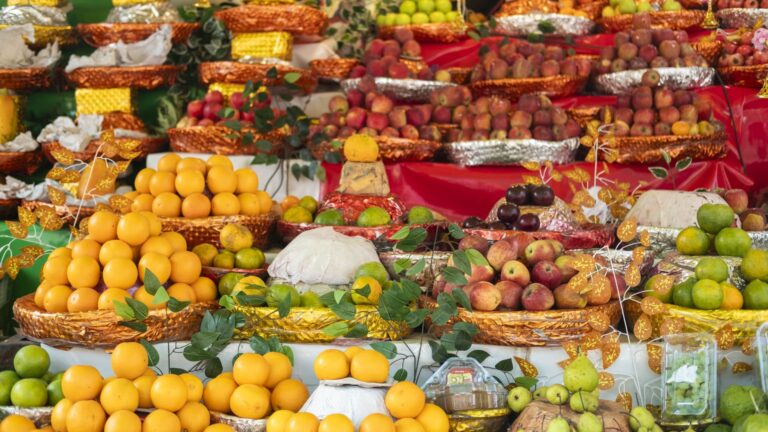India’s central bank held its key interest rate for a seventh straight policy meeting on Friday as growth in the economy is expected to remain robust while inflation stays above the 4% target.
Bloomberg | Bloomberg | Getty Images
The Indian central bank’s key interest rate was kept unchanged for a seventh straight policy meeting on Friday as growth in the economy is expected to remain robust while inflation stays above the 4% target.
The six-member monetary policy committee kept the main lending rate at 6.5%, in line with expectations. The repo rate was raised by a total of 250 basis points between May 2022 and February 2023.
“Robust growth prospects provide the policy space to remain focused on inflation and ensure its descent to the target of 4%,” RBI Governor Shaktikanta Das said in his prepared statement.
Monetary policy must remain actively disinflationary at this stage, Das said.
Inflation was the “elephant in the room” for the Indian economy two years ago, Das said.
While low core inflation provides comfort, the uncertainty on food inflation remains a worry.
Upasna Bhardwaj
chief economist, Kotak Mahindra Bank
“The elephant has now gone out for a walk and appears to be returning to the forest. We would like the elephant to return to the forest and remain there on a durable basis.”
But Das flagged that food price volatility remains a concern, although core inflation has fallen sharply in recent months to below 4%.
“While low core inflation provides comfort, the uncertainty on food inflation remains a worry,” said Upasna Bhardwaj, chief economist at Kotak Mahindra Bank.
“We do not see much scope for any rate easing until the second quarter of 2024-25,” she said, referring to the July-September quarter this year.
Five out of six members of the rate setting committee voted in favor of the rate decision while the monetary policy stance of ‘withdrawal of accommodation’ was retained with a majority of five votes.
The status quo policy left markets unmoved.
The Indian rupee INR=IN gained slightly against the U.S. dollar at 83.4050, just above a record low hit on Thursday, while bond yields were unchanged at 7.10%. The NSE Nifty 50 .NSEI index as well as the BSE Sensex .BSESN traded flat.
The central bank said the Indian economy is expected to expand by 7% in the fiscal year 2025, which began on April 1, unchanged from its earlier forecast.
Strengthening rural demand, improving employment conditions, moderating inflation pressures and a sustained pick up in the manufacturing and services sectors should boost consumer demand, Das said.
India’s GDP growth is seen at 7.6% in the year ended March 31, 2024, but consumption, which forms nearly 60% of the economy, is likely to grow at just 3% – the lowest in two decades barring the pandemic period.
“We expect monetary easing either through a rate cut or change in stance to begin from October 2024,” said Devendra Kumar Pant, chief economist at India Ratings & Research.
But he added that the economy’s strong growth momentum may limit rate cuts in this cycle to 50 to 75 basis points.
Retail inflation for 2024-25 is seen at 4.5%, Das said.
The committee believes that durable price stability would set strong foundations for a period of high growth, it said.
However volatile food prices could change the outlook.
“The increasing incidence of climate shocks remains a key upside risk to food prices,” the rate setting panel said in its monetary policy statement.
India is likely to experience more heat-wave days than normal between April and June, the country’s weather office said earlier this week.
Building strong buffers
Despite India’s strong growth and inflows into equity and debt markets, the Indian rupee continues to trade near record lows as the central bank has chosen to absorb dollar inflows to build reserves.
Foreign exchange reserves hit a record high of $645.6 billion as of March 29, Das said.
The data is due to be formally released later on Friday.
“It is our prime focus to build a strong umbrella, a strong buffer in the form of a substantial quantum of forex reserves which will help us when the cycle turns or when it rains heavily,” Das said.


